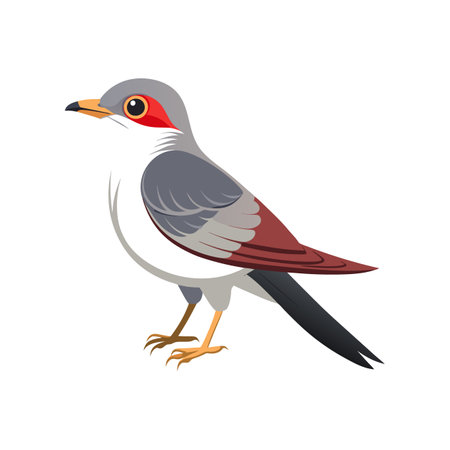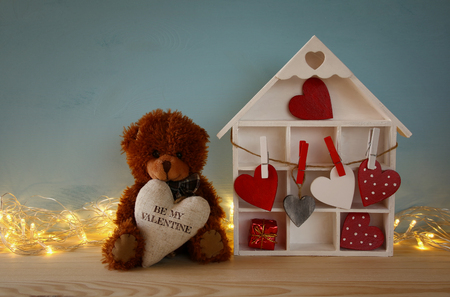Understanding UK Pet Bird Welfare Standards
If you’re looking to create a safe and enriching environment for your feathered friends, understanding the regulations and welfare guidelines set by British authorities is essential. The UK has specific standards designed to protect pet birds, ensuring their well-being through proper housing, suitable toys, and bird-safe décor. These rules are outlined in legislation such as the Animal Welfare Act 2006, along with advice from organisations like the RSPCA and DEFRA. By following these standards, you not only comply with the law but also provide your pet birds with a space that supports both their physical health and mental stimulation.
Key UK Regulations for Bird Care
| Regulation/Guideline | Main Focus | Application to Décor & Toys |
|---|---|---|
| Animal Welfare Act 2006 | Ensures all pets have a suitable environment, diet, and enrichment. | Decor and toys must be non-toxic, safe, and promote natural behaviours. |
| DEFRA Codes of Practice | Provides practical advice on day-to-day care and welfare. | Encourages use of items that prevent boredom and stress in birds. |
| RSPCA Guidance | Promotes best practices in pet bird husbandry. | Recommends regular rotation of toys and appropriate cage accessories. |
What Does This Mean for Your Bird’s Cage?
To meet UK standards, all cage decorations and toys should be made from bird-safe materials, free from sharp edges or toxic paints, and appropriately sized for your species. Regular cleaning, careful selection of enrichment activities, and observation of your bird’s behaviour are encouraged. By prioritising safety and stimulation in line with UK guidance, you foster a happier, healthier life for your avian companion.
2. Selecting Safe and Non-toxic Materials
Choosing the right materials for bird cage décor and toys is essential to keep your feathered friends safe, healthy, and entertained. In the UK, there are specific safety standards and recommended practices to ensure that all products in your bird’s environment are non-toxic and hazard-free. Below, we offer practical advice on selecting the best materials for your birds, following UK-approved guidelines.
Key Factors When Selecting Materials
- Non-Toxicity: Always check that any material or finish is labelled as bird-safe or non-toxic. Some paints, metals, and plastics can be harmful if ingested or chewed.
- Durability: Birds can be persistent chewers. Opt for sturdy materials that withstand pecking and playing without breaking into dangerous pieces.
- Easy to Clean: Select items that can be washed easily to maintain hygiene inside the cage.
- Avoid Sharp Edges: Ensure all décor and toys have smooth finishes to prevent injuries.
Preferred Materials for Bird Décor and Toys in the UK
| Material | Why It’s Preferred | UK Safety Notes |
|---|---|---|
| Stainless Steel | Highly durable, rust-resistant, safe for food and water dishes, swings, ladders | BPA-free; ensure no sharp edges |
| Natural Untreated Wood (e.g., ash, beech) | Satisfies chewing instincts, natural texture aids beak health | Avoid woods like yew or cedar; make sure wood is untreated with chemicals or varnish |
| Cotton Rope (100% natural) | Great for perches and climbing toys; encourages exercise | Avoid loose threads to prevent tangling or ingestion; regularly inspect for wear |
| Sisal Rope (natural fibre) | Tough and durable for hanging toys or swings | Ensure its free from chemical treatments or oils |
| Acrylic & Food-Grade Plastics | Bright colours attract birds; easy to clean; ideal for puzzle toys | BPA-free only; discard at first sign of cracking |
| Naturally Dyed Vegetable Leathers | Chemical-free colouring; suitable for shredding toys | Avoid chrome-tanned leather which contains toxins |
| Pine Cones (cleaned & pesticide-free) | Natural enrichment; good for foraging games | Bake before use to kill insects; avoid sprayed cones |
Materials to Avoid in Bird Cages (UK Guidance)
- Zinc-coated (galvanised) metals – risk of heavy metal poisoning if chewed
- Treated woods or painted surfaces not labelled as bird-safe
- Certain plastics containing phthalates or BPA
- Fabric with dyes or finishes not certified safe for birds
- Scented materials or aromatic woods like cedar and pine resinous types
Quick Tip:
If you’re unsure about a product’s safety, always look for British Standard certifications (such as BS EN 71-3:2019) on packaging, and consult with your local avian vet or reputable UK pet retailer before introducing new items into your bird’s habitat.

3. Enrichment Ideas for Mental Stimulation
Providing mental stimulation for your pet bird is essential to their wellbeing, especially when keeping them indoors in the UK’s often variable climate. Enrichment toys and decor not only keep birds entertained but also support their natural instincts, such as foraging, climbing, and problem-solving. Here are some popular UK-appropriate options that encourage natural behaviours while adhering to safety standards:
Popular Toys and Activities
| Toy/Activity | Description | Benefits | UK Availability |
|---|---|---|---|
| Foraging Toys | Puzzle feeders or treat-dispensing toys that require birds to work for their food. | Encourages problem-solving and mimics wild foraging behaviour. | Widely available from UK pet retailers like Pets at Home. |
| Natural Wood Perches | Perches made from UK-approved woods (e.g., willow, apple) with bark intact. | Promotes foot health and allows chewing and gnawing. | Easily sourced from ethical UK suppliers. |
| Shreddable Toys | Toys made from paper, palm leaves, or seagrass designed to be torn apart. | Satisfies chewing instincts and prevents boredom-related feather plucking. | Available in most UK pet shops; check for non-toxic materials. |
| Ladders & Swings | Moveable accessories made with safe metal or untreated wood. | Aids exercise and balance; encourages exploration within the cage. | Commonly stocked by major UK chains. |
| Mirrors & Bells (with caution) | Small mirrors or bells securely attached to the cage. | Adds interest and interaction, but use sparingly to avoid obsessive behaviours. | Sold in UK stores; always follow safety guidelines. |
DIY Activity Ideas Suited to British Birds
- Homemade Forage Boxes: Fill small cardboard boxes with safe treats and shreddable paper for your bird to discover.
- Naturally Sourced Branches: Collect branches from pesticide-free gardens (ensure species are bird-safe) for perching and gnawing.
- Puzzle Treat Holders: Use clean egg cartons or muffin trays to hide seeds or nuts, encouraging curious playtime.
Safety Tips for UK Bird Owners:
- Avoid toys with zinc-coated parts, sharp edges, or loose threads that can trap toes or beaks.
- Select decor and activities certified as non-toxic and compliant with UK/EU safety regulations (such as EN71).
- Rotate toys weekly to maintain novelty and prevent habituation.
Selecting a variety of these enrichment ideas ensures your bird remains engaged, happy, and healthy while living indoors in the UK environment.
4. Decorating the Cage: Practical and Aesthetic Tips
Creating a bird-friendly environment in your home starts with thoughtful cage decoration that balances both stimulation and comfort. Here are some practical and aesthetic suggestions tailored for UK bird owners who want their feathered companions to thrive:
Choosing Suitable Decor Items
When selecting decorative items, opt for non-toxic materials approved by UK standards—such as untreated wood, stainless steel, and BPA-free plastics. Avoid painted or lacquered surfaces that could chip or flake. Incorporating natural elements like willow or seagrass can give a touch of the British countryside while being safe for birds to chew.
Balancing Functionality and Style
The best cage decor not only looks appealing but also serves a purpose. Use perches of varying thickness and materials to promote healthy feet, and add swings or ladders to encourage exercise. Consider the overall look—subtle colours often blend seamlessly with British interiors, while still providing visual interest for your pet.
Decor Ideas and Their Benefits
| Decor Item | Main Benefit | UK-Friendly Tip |
|---|---|---|
| Natural Wood Perches | Prevents foot fatigue; encourages climbing | Choose native woods like apple or hazel |
| Seagrass Mats | Satisfies chewing instincts; easy to replace | Source from reputable UK pet suppliers |
| Ceramic Food Dishes | Easy to clean; no leaching chemicals | Select neutral colours to match décor |
| Stainless Steel Toys | Durable; encourages play without rusting | Avoid sharp edges; check local brands |
Positioning for Comfort and Stimulation
Arrange decor so birds have clear flight paths, resting zones, and areas for private retreat. Place perches at different heights but avoid overcrowding, ensuring easy access to food and water. Rotate toys and decorative pieces regularly to maintain interest and prevent boredom.
Final Touches for a Homely Feel
Add a small mirror or bell for solitary birds (if suitable for the species), hang colourful but safe banners outside the cage, or drape a breathable cover on one side for privacy at night. Remember, always prioritise safety: remove any item that becomes worn or hazardous. By combining style with thoughtful functionality, you’ll create a cage environment that’s both stimulating and comfortable—right at home in any UK household.
5. Where to Find UK-Approved Bird Cage Accessories
Finding safe, stimulating, and high-quality bird cage décor and toys in the UK is easier than ever thanks to a variety of trusted retailers and specialist online sources. When shopping for your feathered friend, it’s important to choose products that comply with UK safety standards and are made from non-toxic materials suitable for birds. Below is a guide to reputable British outlets where you can confidently purchase approved accessories:
Trusted High Street Retailers
| Retailer | Type of Products | Location/Availability |
|---|---|---|
| Pets at Home | Cage décor, toys, perches, swings | Nationwide stores & online |
| Jollyes | Toys, enrichment items, natural accessories | UK-wide branches & website |
| The Range | Budget-friendly décor and basic toys | Physical stores across the UK & online shop |
Specialist Online Stores
| Website | Key Offerings | Why Choose? |
|---|---|---|
| Northern Parrots northernparrots.com |
Wide variety of safe toys, foraging items, organic perches, custom cage décor | UK-based experts; well-reviewed for quality and safety compliance |
| Swell Pets swellpets.co.uk |
Cage enrichment toys, ladders, natural wood accessories | Focus on eco-friendly and non-toxic products; fast UK delivery |
Shopping Tips for UK Bird Owners
- Always check that products are labelled as bird-safe and free from toxic paints or finishes.
- Select items sized appropriately for your species—smaller birds require lighter toys.
- If unsure about a product’s safety or suitability, consult with your avian vet or a certified bird behaviourist.
Supporting Local Artisans and Small Businesses
Consider exploring local craft fairs or online platforms like Etsy UK for handmade bird toys crafted from untreated wood and natural fibres. Many small businesses in Britain specialise in bespoke accessories that are both decorative and safe for parrots, budgies, canaries, and finches.
By choosing reputable British sources and prioritising safety certifications, you’ll provide your pet birds with stimulating environments that meet the highest welfare standards while supporting local businesses.
6. Maintenance and Safety Checks
Ensuring your bird’s cage remains a safe and stimulating environment requires regular maintenance and thorough safety checks. In the UK, with its variable climate and emphasis on animal welfare, routine inspections are vital for preventing hazards and prolonging the life of your décor and toys. Below are practical steps and a checklist to help you maintain high standards of care for your feathered friend.
Routine Care Advice
- Daily Wipe-Down: Remove food debris, feathers, and droppings from toys and cage décor each day. This prevents mould growth and keeps the environment hygienic.
- Weekly Deep Clean: Remove all items from the cage and wash them with warm water. Use a bird-safe disinfectant approved in the UK to avoid harmful residues.
- Monthly Inspection: Assess every toy and piece of décor for signs of wear, damage, or rust (especially on metal parts). Replace items showing any deterioration to prevent injury.
Guidance for Inspecting Toys and Décor
Regular inspections help identify potential hazards early. Pay close attention to the following aspects:
| Item | What to Check | Action Required |
|---|---|---|
| Wooden Toys/Perches | Splinters, cracks, or excessive wear | Sand minor splinters or replace if heavily damaged |
| Plastic Accessories | Bite marks, loose parts, or sharp edges | Remove immediately if broken or sharp |
| Ropes/Ladders | Fraying, knots tightening, or unravelling fibres | Trim frayed ends; replace if structure is compromised |
| Metal Fixtures | Rust, corrosion, or loose fittings | Tighten fittings; discard rusted or corroded items |
| Bells/Small Parts | Dismantling, loose components, or trapped debris | Re-secure parts; clean thoroughly or replace if needed |
Top Tips for UK Bird Owners:
- Avoid second-hand toys: Unless you’re certain of their history and cleanliness, it’s safer to buy new, UK-approved accessories.
- Monitor seasonal changes: Damp weather can accelerate mould growth on wood—inspect more frequently during autumn and winter.
- Create a maintenance calendar: Set reminders for deep cleans and monthly inspections to ensure nothing is overlooked.
- Observe your bird’s behaviour: Birds often signal discomfort by avoiding certain toys—this may indicate hidden issues that need attention.


